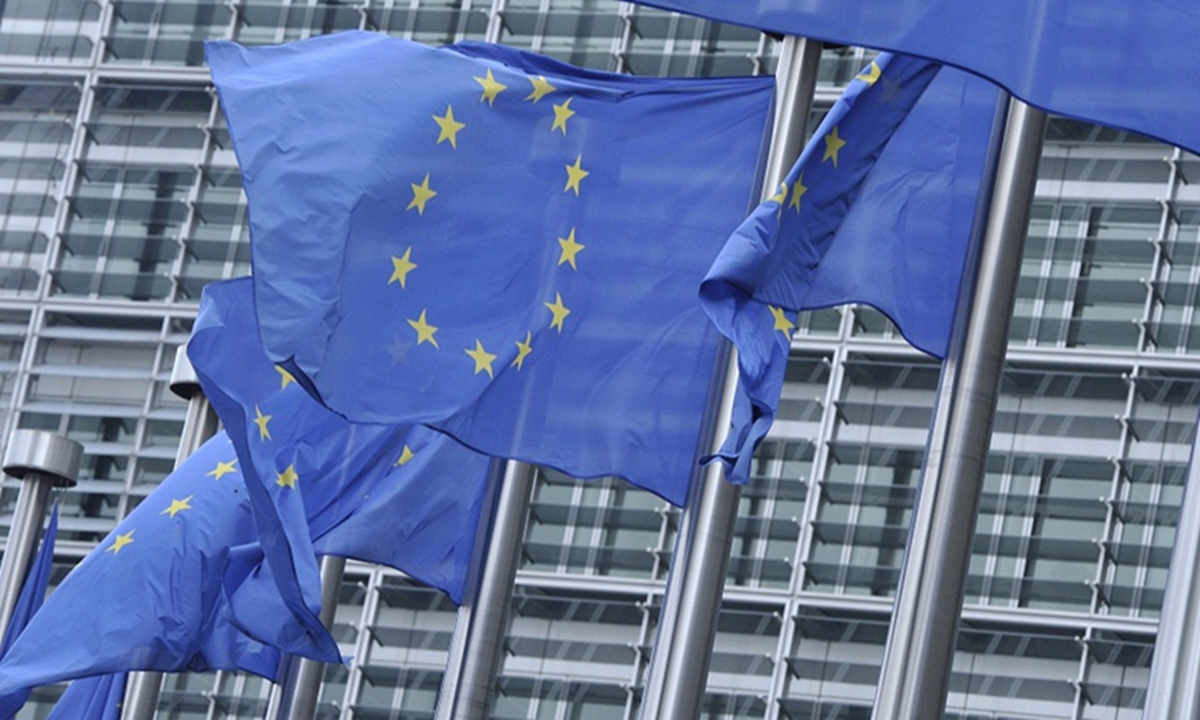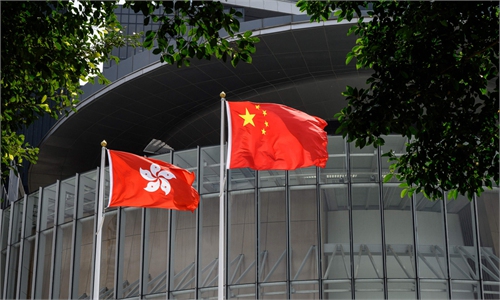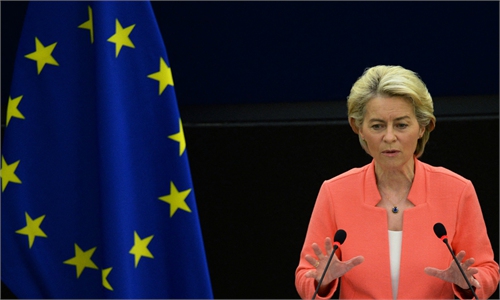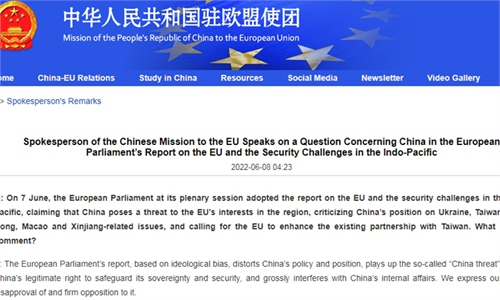
The European Union flags in front of EU headquarters in Brussels, Belgium. Photo: Xinhua
As the only directly elected body of the seven European Union (EU) institutions, the European Parliament (EP) often portrays itself as "the voice of the people." But in recent years, it has packaged the hostility of some European politicians toward China as public opinion, trying to hijack the actual view of Europeans toward China.A report on the EU and the security challenges in the Indo-Pacific adopted by the EP at its plenary session on Tuesday claims that China poses a threat to the Union's interests in the region, criticizing China's position on the Ukraine crisis and Taiwan, Hong Kong, Macao, and Xinjiang-related issues.
In response, a spokesperson of the Chinese Mission to the EU said that the report is based on ideological bias, distorts China's policy and position, plays up the "China threat," denies the country's legitimate right to safeguard its sovereignty and security, and grossly interferes with its internal affairs.
Cui Hongjian, director of the Department of European Studies at the China Institute of International Studies, told the Global Times that the adopted report does not necessarily represent the position of the whole Union.
The Chinese scholar believes that the EP has become a place for political performances, especially over China-related issues in the past years.
On the one hand, due to the separation of powers in the EU's institutions, the EP has to constantly increase its presence through political performances to gain or consolidate its say in the EU's decision-making.
"Judging from the procedure of policy-making in the Union, a policy is generally proposed by the European Commission and then discussed and approved by the EP and the EU Council. But now the EP often attempts to exert influence over the Union's policy, even before a policy proposal has been formed on the part of the European Commission," noted Cui.
On the other, the growing populism in Europe is exemplified in the parliament. This EU body must rely on giving such political performances to support itself, since it acts quite unprofessionally and against common sense in many areas involving foreign affairs.
Unlike other EU institutions, the EP has a unique, deep concern over human rights issues. Thus, this legislative body can easily go to extremes regarding human rights.
In recent years, the EP appears to have developed a new characteristic: Hyping China-related topics, including through ridiculous exaggerations or distortions of China's human rights situation. It has created obstacles for those who want to advance China-EU relations in Europe.
Some of the EP's statements and actions - hostile and reckless in China's eyes - have seriously affected the political mutual trust between the two sides. According to Cui, they will also undermine Beijing's faith in EU institutions, because it seems the parliament now tends to be hasty in making statements on many China-related issues, such as Xinjiang-related ones, without any hard evidence.
In addition, the EP could interfere with the policy decisions of other EU institutions, especially those advocating cooperation with China, limiting the space for pragmatic cooperation between China and Europe.
Most importantly, the EP, as a self-proclaimed representation of public opinion, aims to influence the true opinion of European society. Under its impact, public opinion in Europe has grown increasingly hostile toward China, which, in turn, encourages some European politicians to continue the hype of the "China threat."
As a result, the formation of public opinion in Europe toward China ends up in a vicious circle. The social and public opinion basis in Europe for cooperation and engaging with China is being gradually destroyed.



